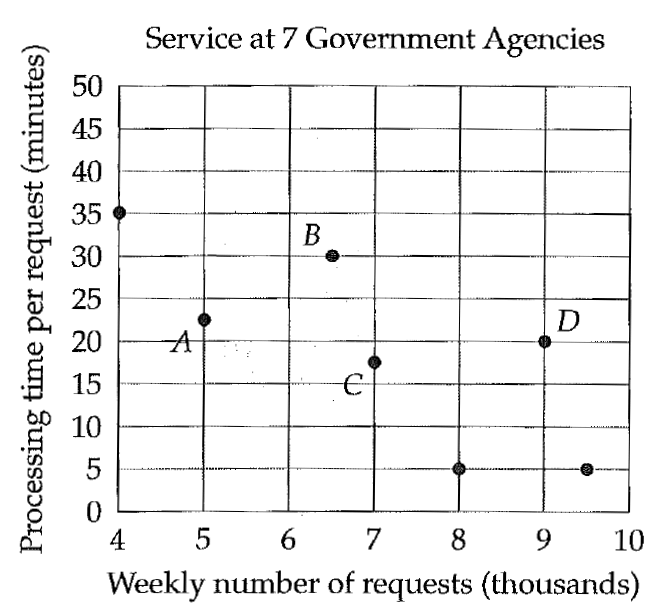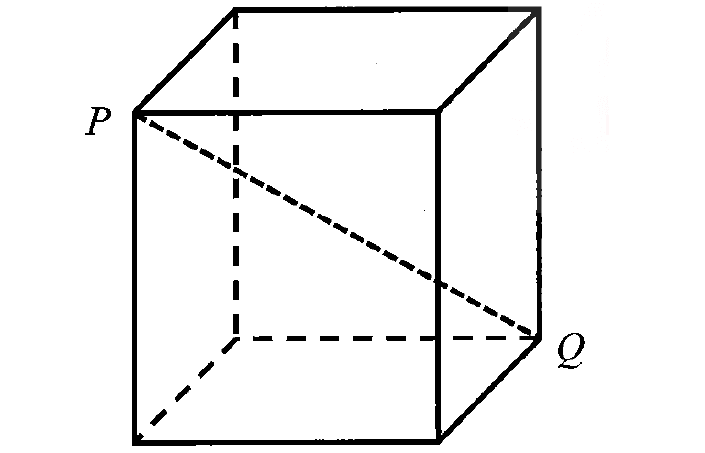HOW MANY TERMS ARE NEEDED TO YIELD A SUM
We have to consider the given sum as Sn. Instead of Sn, we may use one of the formulas given below.
Sn = (n/2) [a + l] (or)
Sn = (n/2) [2a + (n - 1)d]
a = first term, d = common difference and n = number of terms.
Question 1 :
How many terms of the AP
9, 17, 25,..........
must be taken to give a sum of 636?
Solution :
Sn = 636
a = 9, d = 17 - 9 = 6
Sn = (n/2) [2a + (n - 1)d]
(n/2) [2(9) + (n - 1)8] = 636
(n/2) [18 + 8n - 8] = 636
(n/2) [10 + 8n] = 636
n[5 + 4n] = 636
5n + 4n2 = 636
4n2 + 5n - 636 = 0
4n2 - 48n + 53n - 636 = 0
4n(n - 12) + 53(n - 12) = 0
(n - 12) (4n + 53) = 0
n = 12
By solving other factor (4n + 53), we get negative value for n, which is not admissible.
So, 12 terms to be added to get the sum 636.
Question 2 :
The first term of an AP is 5, the last term is 45 and the sum is 400. Find the number of terms and common difference.
Solution :
Given that :
First term (a) = 5, last term (l) = 45 and Sn = 400
Sn = (n/2) [a + l]
(n/2) [5 + 45] = 400
(n/2) [50] = 400
25n = 400
n = 400/25
n = 16
Hence the given series consist of 16 terms.
Question 3 :
In an arithmetic sequence
60, 56, 52, 48,.......
starting from the first term, how many terms are needed so that their sum is 368 ?
Solution :
Given that :
Sn = 368
60, 56, 52, 48,.......
a = 60, d = 56 - 60 = -6
(n/2)[2a+(n-1)d] = 368
(n/2)[2(60)+(n-1)(-4)] = 368
(n/2) (120-4n+4) = 368
(n/2) (124 - 4n) = 368
n(124-4n) = 368(2)
124n - 4n2 = 736
4n2-124n+736 = 0
÷ by 4 = > n2-31n+184 = 0
(n-23)(n-8) = 0
n = 23, 8
Sum of 8 or 23 terms of arithmetic sequence is 368.
Question 4 :
the sum of first n terms of an arithmetic progression is 3n2 + 5n. The series is
a) 8, 14, 20, 26, ........... b) 8, 22, 42, 68, ..........
c) 22, 68, 114, ........... d) 8, 14, 28, 44, ...........
Solution :
Sn = 3n2 + 5n
When applying n = 1, we get the first term
S1 = 3(1)2 + 5(1)
= 3 + 5
S1 = 8
Applying n = 2, we get
S2 = 3(2)2 + 5(2)
= 12 + 10
S2 = 22
Here S2 is the sum of first two terms.
a + a + d = 22
Where a = 8,
2a + d = 22
2(8) + d = 22
16 + d = 22
d = 22 - 16
d = 6
First term is 8 and common difference is 6.
8, (8 + 6), 14 + 6, .........
8, 14, 20..........
Question 5 :
The number of terms of the series 5 + 7 + 9 + ........... must be taken so that the sum may be 480
a) 20 b) 10 c) 15 d) 25
Solution :
5 + 7 + 9 + ...........
a = 5, d = 7 - 5 ==> 2
Sum of n terms = 480
(n/2)[2a+(n-1)d] = 480
(n/2)[2(5) + (n - 1)2] = 480
(n/2) [10 + 2n - 2] = 480
(n/2) [8 + 2n] = 480
8n + 2n2 = 480(2)
Dividing by 2, we get
4n + n2 = 480
n2 + 4n - 480 = 0
(n - 20) (n + 24) = 0
n = 20 and n = -24
The value of n cannot be negative. Then, the value of n is 20.
Question 6 :
If the sum of five terms of AP is 75. Find the third term of the series.
Solution :
Sn = (n/2)[2a+(n-1)d]
S5 = (5/2)[2a+(5-1)d] = 75
(5/2)[2a + 4d] = 75
2a + 4d = 75(2/5)
2a + 4d = 30
Dividing by 2, we get
a + 2d = 15
Writing third term in terms of a and d, we get a + 2d = 15
So, the answer is 15.
Question 7 :
If 2 + 6 + 10 + 14 + 18 + .............. + x = 882
then the value of x
a) 78 b) 80 c) 82 d) 86
Solution :
2 + 6 + 10 + 14 + 18 + .............. + x = 882
a = 2, d = 4, Sn = 882
Sn = (n/2)[2a+(n-1)d]
882 = (n/2)[2(2) + (n - 1) 4]
882 = (n/2) [4 + 4n - 4]
882 = (n/2) [4n]
882 = 2n2
Dividing by 2, we get
n2 = 441
n2 = 212
So, the required number of terms is 21.
Kindly mail your feedback to v4formath@gmail.com
We always appreciate your feedback.
©All rights reserved. onlinemath4all.com
Recent Articles
-
Digital SAT Math Problems and Solutions (Part - 153)
Apr 29, 25 12:18 PM
Digital SAT Math Problems and Solutions (Part - 153) -
Digital SAT Math Problems and Solutions (Part - 152)
Apr 28, 25 11:54 AM
Digital SAT Math Problems and Solutions (Part - 152) -
Digital SAT Math Problems and Solutions (Part - 151)
Apr 26, 25 11:18 AM
Digital SAT Math Problems and Solutions (Part - 151)

